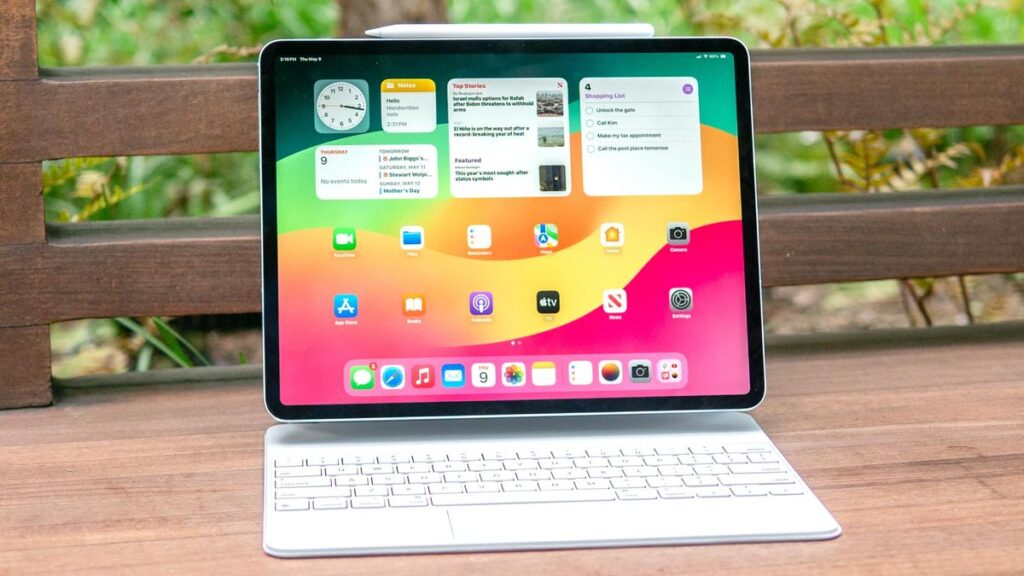The best tablet for your needs can be tricky to find because there are so many good options to choose from now, whether you want a fancy futuristic slate computer or cheap tablets to give to the kids.
Luckily, there are lots of good options that are capable and comfy to use, with good battery life and prices that won’t wipe out your rainy-day budget. I know because I’ve been using and reviewing tablets for decades, and I recommend the iPad Air as the best tablet for most folks because it’s a slightly nicer iPad that gives you most of the benefits of the iPad Pro for hundreds of dollars less.
But you don’t need to pay the Apple tax if you just want a cheap, reliable tablet for browsing the web or watching kid shows in the back seat. The Amazon Fire 7 is a perfectly serviceable tablet that can be yours for less than a hundred bucks, and if you don’t mind paying more but prefer Android I can heartily recommend the OnePlus Pad 2.
I say that because together my team and I have used and reviewed them all, so we have an intimate knowledge of their strengths and weaknesses. We recommend these slates as the best you can buy right now, but don’t take our word for it—you can click through the link to each review to read detailed hands-on reports and performance test results.
Tablet deals
Prime Day in October is over but you can still find some excellent deals on some of the best tablets. Here are three deals we think are pretty great.
The quick list
In a hurry? Here’s a brief overview of the tablets on this list, along with quick links that let you jump down the page directly to a review of whichever tablet catches your eye.
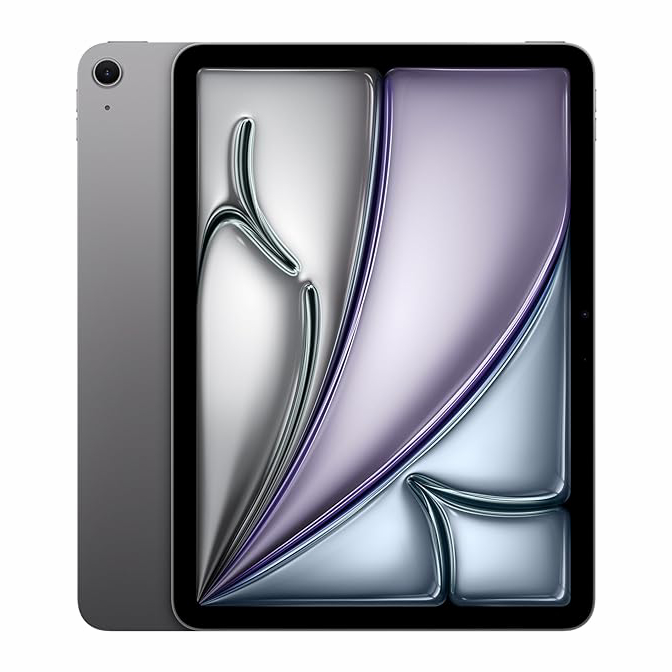
Apple’s 2024 iPad Air soars to new heights thanks to the M2 chip inside. With a great display and plenty of power, this is the best tablet for most.
Read more below
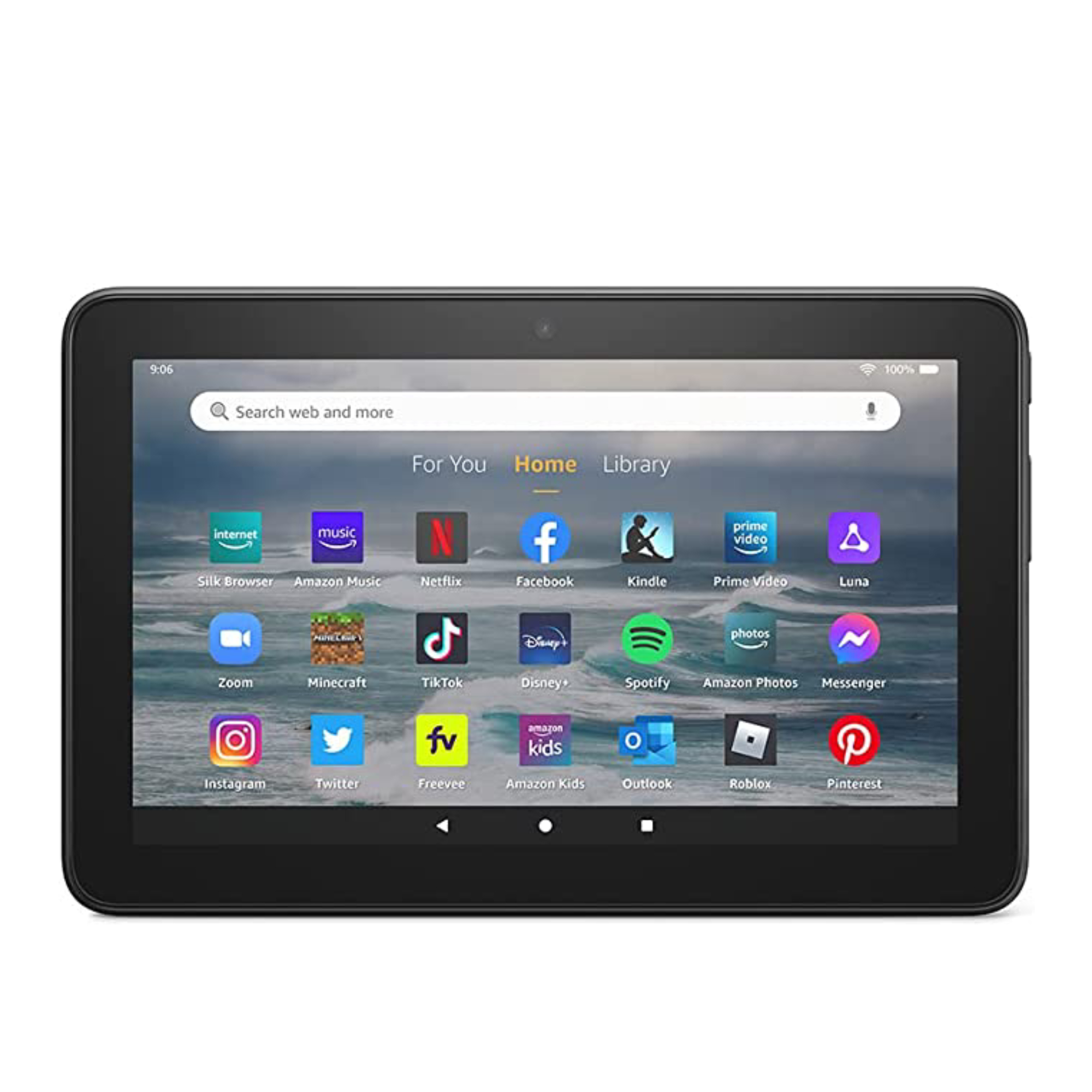
If you just need a tablet for not a lot of money, the $59 Amazon Fire 7 is a solid choice. This no-frills tablet is weak, hobbled by Amazon’s FireOS and has a grainy sub-1080p display, but you can’t beat it at this price.
Read more below
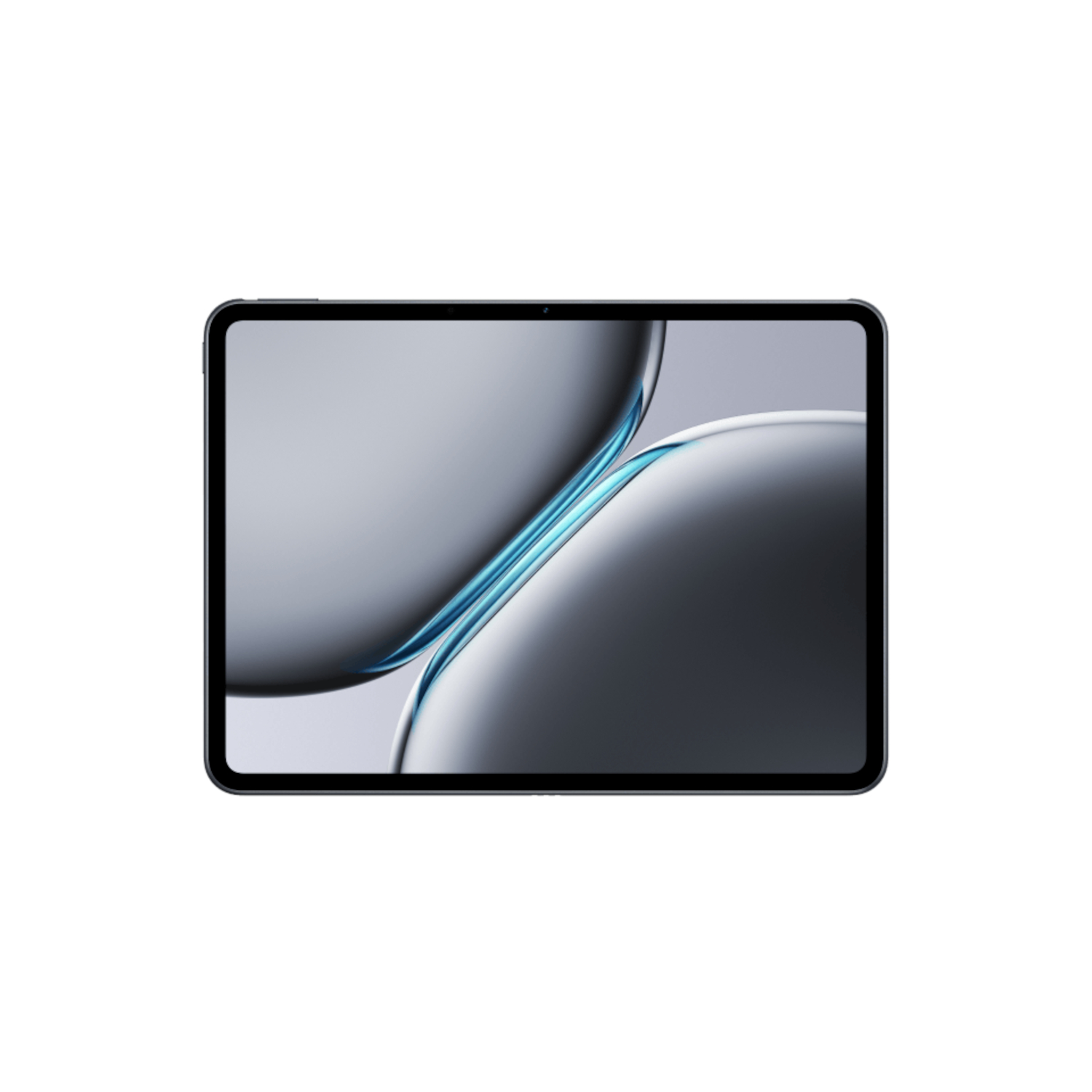
With a huge 13MP rear camera, curved edges and a unique 7:5 aspect ratio, the OnePlus Pad 2 makes a bold statement. Videos and ebooks look great on its vivid 12.1-inch 144Hz display. Its Snapdragon 8 Gen 3 CPU and Android 14 OS make apps and games run smooth and fast. It’s an overall winner for Android tablets.
Read more below
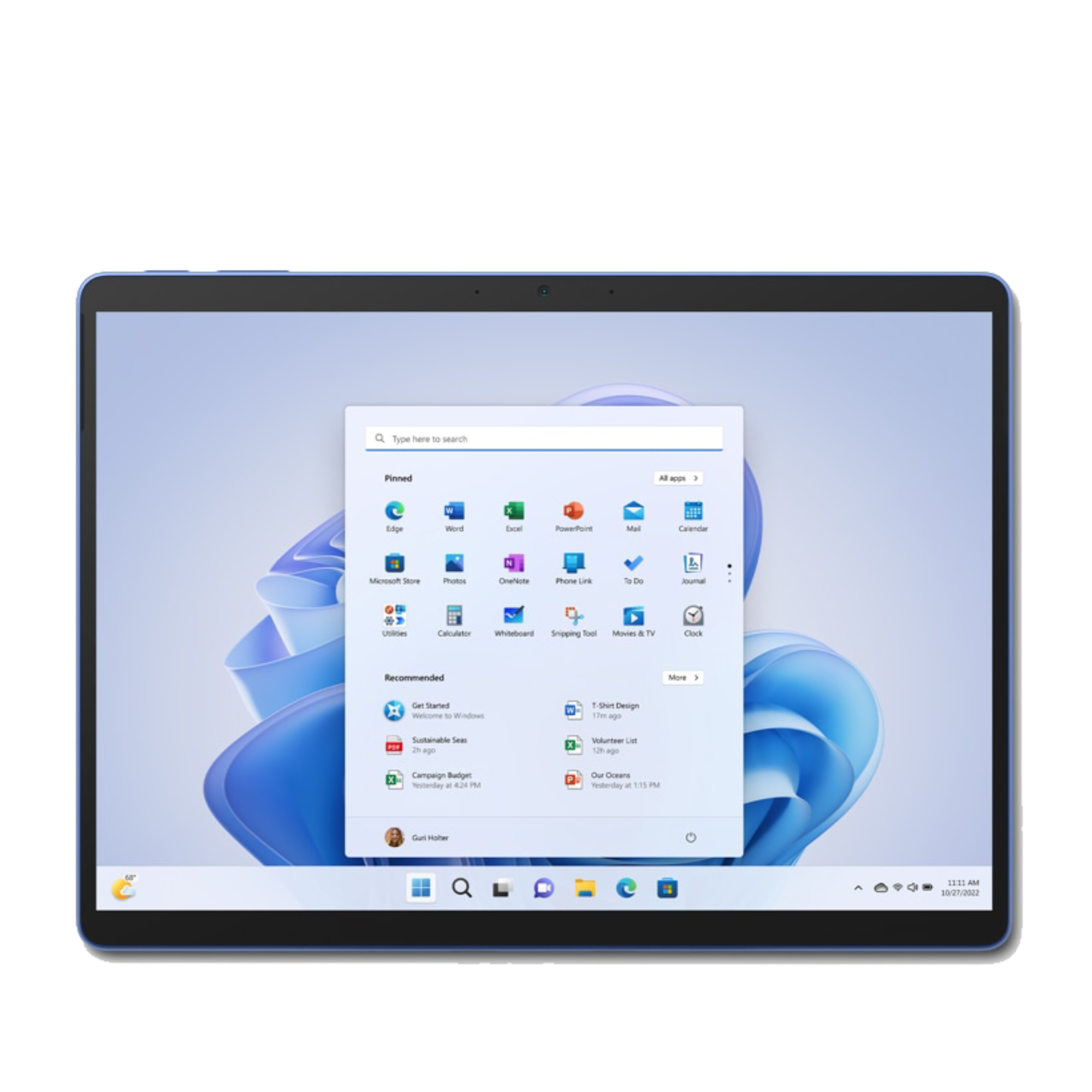
4. Microsoft Surface Pro 11
Windows 11 is the most touch-friendly version of Windows yet, and if you want to use it on a tablet we recommend Microsoft’s Surface Pro 11. It’s a solid tablet that works well enough for getting things done if you pay for the detachable keyboard.
Read more below
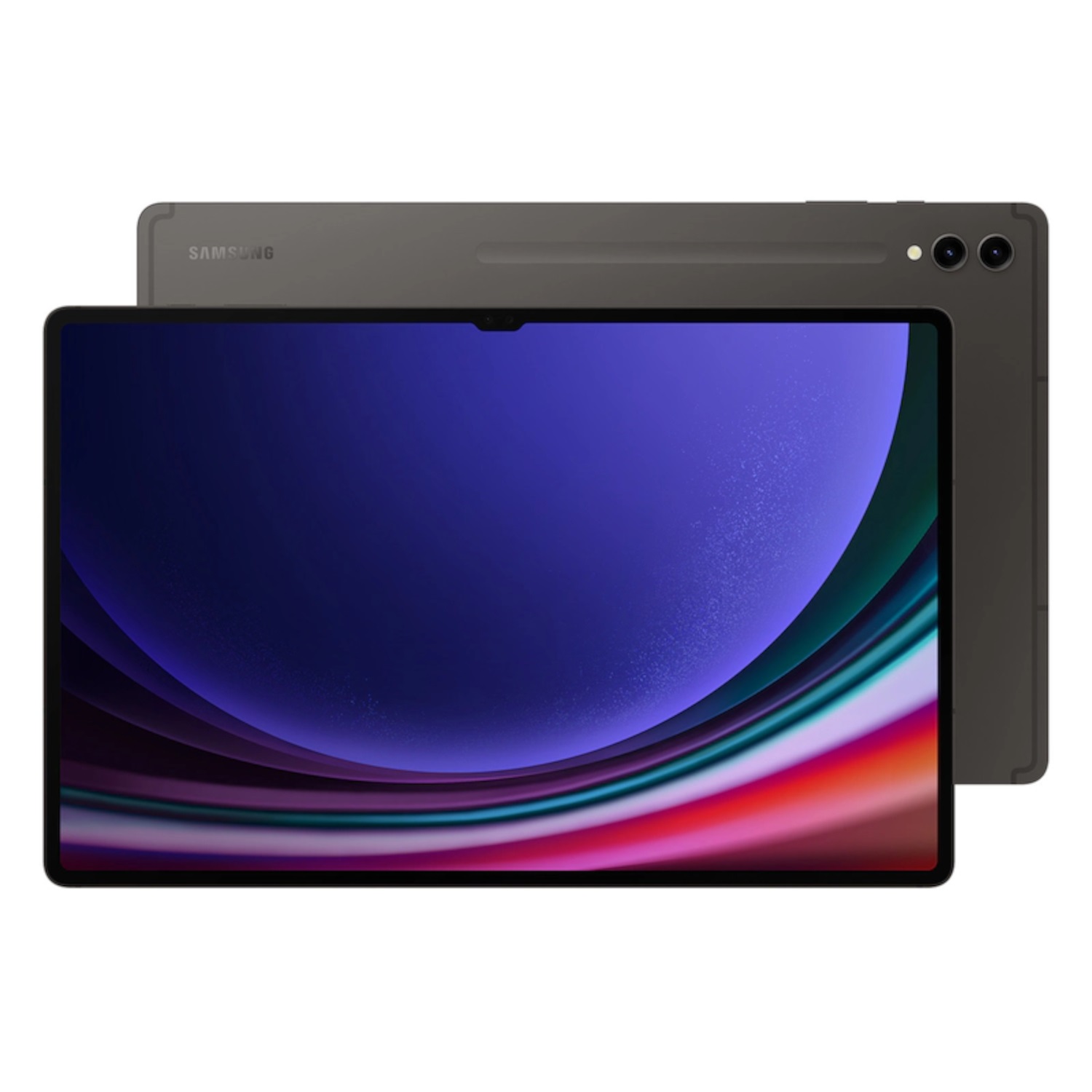
5. Samsung Galaxy Tab S9 Ultra
If you absolutely must have the biggest tablet possible, you want the Samsung Galaxy Tab S9 Ultra. Its 14.6 inch Super AMOLED 120Hz display (bigger than any iPad) is large, luscious and powered by a speedy Snapgradon 8 Gen 2 chipset.
Read more below
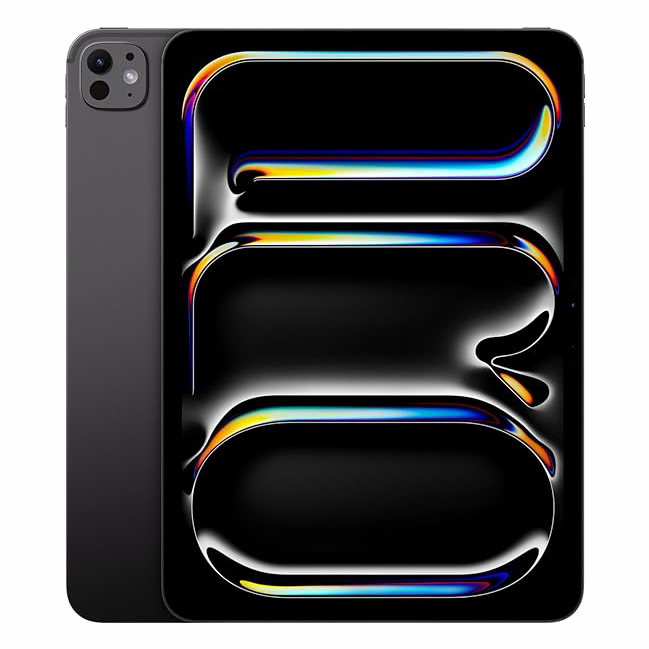
When you want the biggest, best iPad on the block, splurge for the 1TB 13-inch iPad Pro with an M4 chip inside. This is the most powerful iPad yet made, plus it sports a gorgeous OLED display and incredible battery life.
Read more below
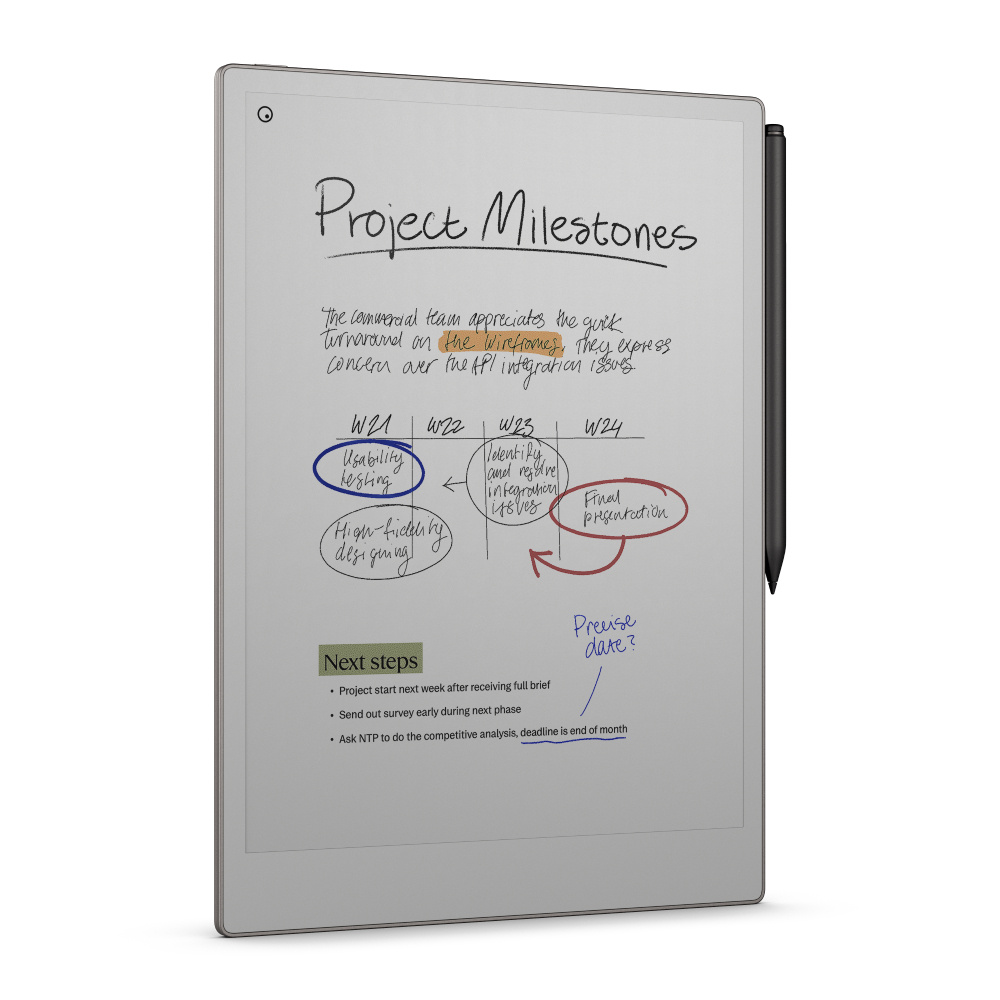
This elegant e-paper slate aims to recreate the feeling of writing on paper, and this model introduces a first for the line: colors! The e-paper display is great for reading and writing, but the tablet is laggy enough to cause frustration and it can’t do as much as the rest of the tablets on this list.
Read more below
We’ve just finished reviewing the ReMarkable Paper Pro, a unique e-paper tablet that offers a new feature that’s a first for the company: colors!
Check out our ReMarkable Paper Pro review for a full rundown of how it works, how good it looks and how it compares to other tablets on the market.

Alex Wawro
Alex Wawro is a lifelong journalist who’s spent over a decade covering tech, games and entertainment. He oversees the computing department at Tom’s Guide, which includes managing tablet coverage and reviewing many himself every year.
The best tablets you can buy
The best tablet overall
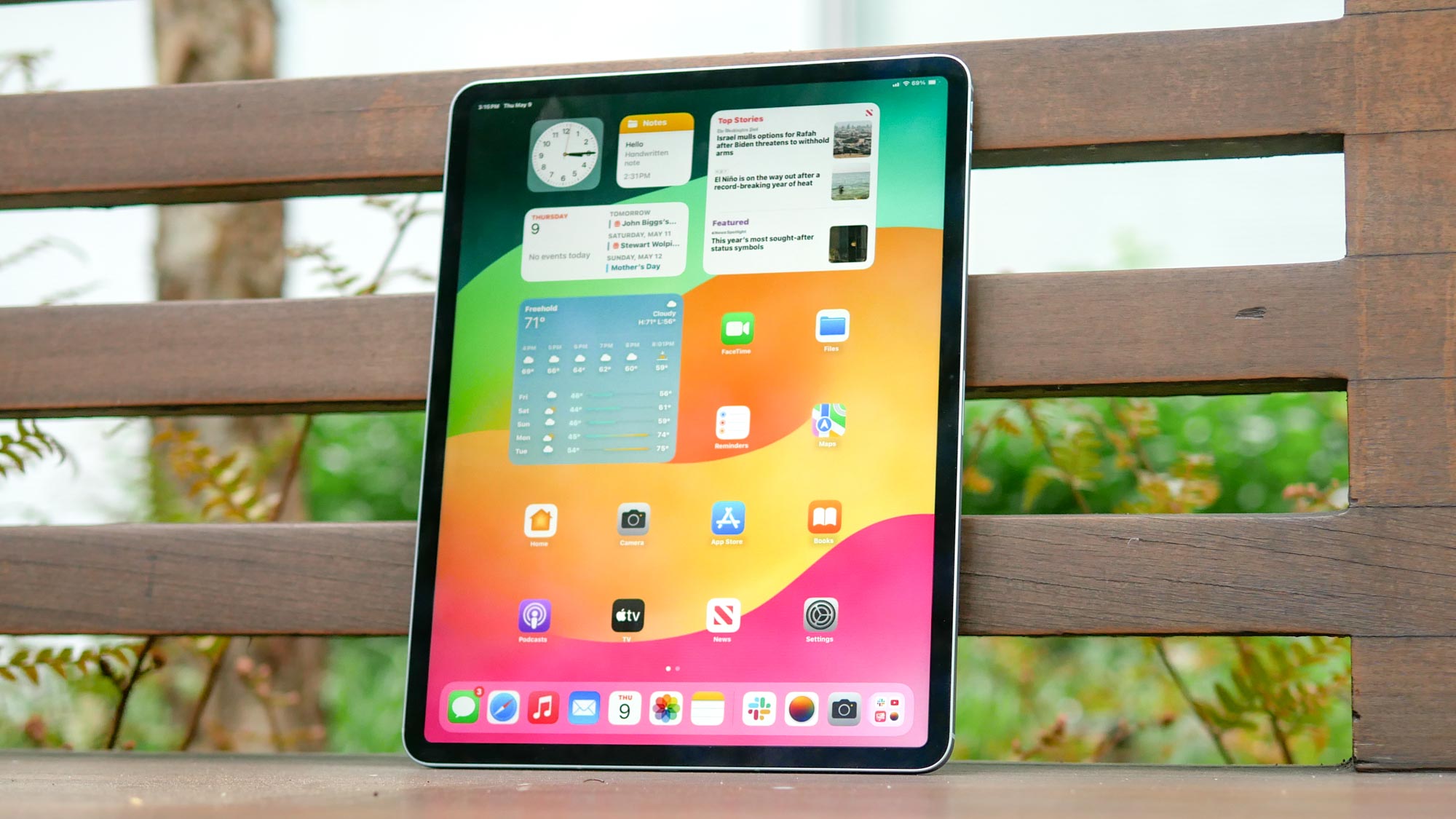

Apple’s iPad Air is the iPad for shoppers who want a slightly thinner, lighter and better version of the original — and the new 2024 model is the best yet.
That’s because this is the first iPad Air to come in either 11-inch or 13-inch varieties, which means you no longer have to shell out for the pricier iPad Pro if you really want a 13-inch iPad. And the latest iPad Air feels plenty snappy thanks to the Apple M2 chip under the hood, which makes every app you run on the device feel fast and responsive. Plus, it supports the Apple Pencil Pro ($129), which means you can use it as an art tool or note-taking device if you’re willing to shell out extra for accessories.
And while you still need to upgrade to the iPad Pro to get Apple’s top-tier mini-LED display, the LED display on the iPad Air looks great–and our testing reveals it gets brighter than its predecessors. This lovely little slate also delivered all-day battery life in our testing lab, lasting nearly 12 hours (11:30) in our battery performance benchmarks. And in our CPU performance tests the 2024 iPad Air speeds past nearly every other tablet on this list, including the OnePlus Pad 2 and the Samsung Galaxy Tab S9 Ultra.
Of course, there are some nits to pick with even our best tablet of the bunch. I wish Apple would enable Face ID support for the iPad Air so you could quickly log in just by looking at it, but no such luck yet — even the 2024 iPad Air only has support for Touch ID, not Face ID. It would also be nice if Apple would do more to make this pint-sized powerhouse a more functional productivity device: you can use it as a decent laptop replacement in a pinch, especially if you shell out $300-$350 for the Magic Keyboard, but iPadOS struggles to keep up with the demands of work like multi-tasking between projects or moving files around.
But those are minor complaints about what I think is easily the best tablet for most people. If you can’t quite afford the new iPad Air you can get nearly as much value out of an older, discounted model or the weaker base iPad, but those who can afford to pay for the best should shell out for the Air.
See our full iPad Air (2024) review.
The best budget tablet
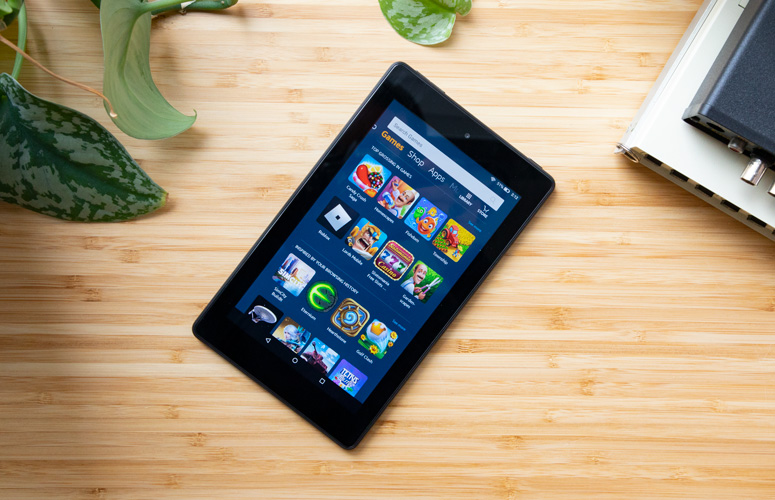
Amazon’s Fire tablets are some of the cheapest slates you can buy, and the Amazon Fire 7 is the least expensive yet. It’s not the best performer, but for the $60 asking price (or $75 if you want it without ads) there’s no better budget tablet on the market.
That low low asking price is the No. 1 reason why I think this is the best budget tablet, but there are other nice things we can say about the Fire 7. It’s quite light and easy to carry since it weighs under a pound (9.9 ounces), and it lasted for nearly 11 hours in our battery tests — which is almost as good as our top pick, the iPad Air, which costs roughly 10x as much. Plus, it sports a microSD port which lets you slot in additional memory (up to 1TB) via microSD cards. That’s a feature not even Apple’s fanciest tablets can match.
Now for the bad parts: this is a cheap tablet, and it feels like it. The slim, rounded plastic chassis doesn’t feel as nice as the metal and glass you get on fancier tablets like the iPads, and the thick bezels around the screen make the slate feel chintzy. Worse, they surround a fuzzy 7-inch (1024 x 600 pixels) LCD screen which performed poorly in our display tests and has a resolution too low to support HD video. So if you want a cheap tablet for streaming movies and TV shows, I recommend saving up for the Amazon Fire HD 10. It costs twice as much as the cheap Fire 7, but it has a screen capable of displaying HD content at 1080p, which is the minimum you want for a quality viewing experience.
The built-in cameras and speakers are also pretty poor, and you could do better with every other tablet on this list. But every other tablet on this list is also far more expensive than the Fire 7, and I think this sub-$100 slate is a real value for folks who want a cheap tablet you don’t mind breaking or losing. It’s especially well-suited to being a child’s first tablet, since it’s easy to replace and runs all the apps on Amazon’s App Store. Amazon’s Android app selection is more limited than you get on a full Android tablet like the OnePlus Pad 2, but you still get most of the hits plus you can take advantage of Amazon’s robust parental controls for FireOS.
Read our full Amazon Fire 7 review.
The best Android tablet
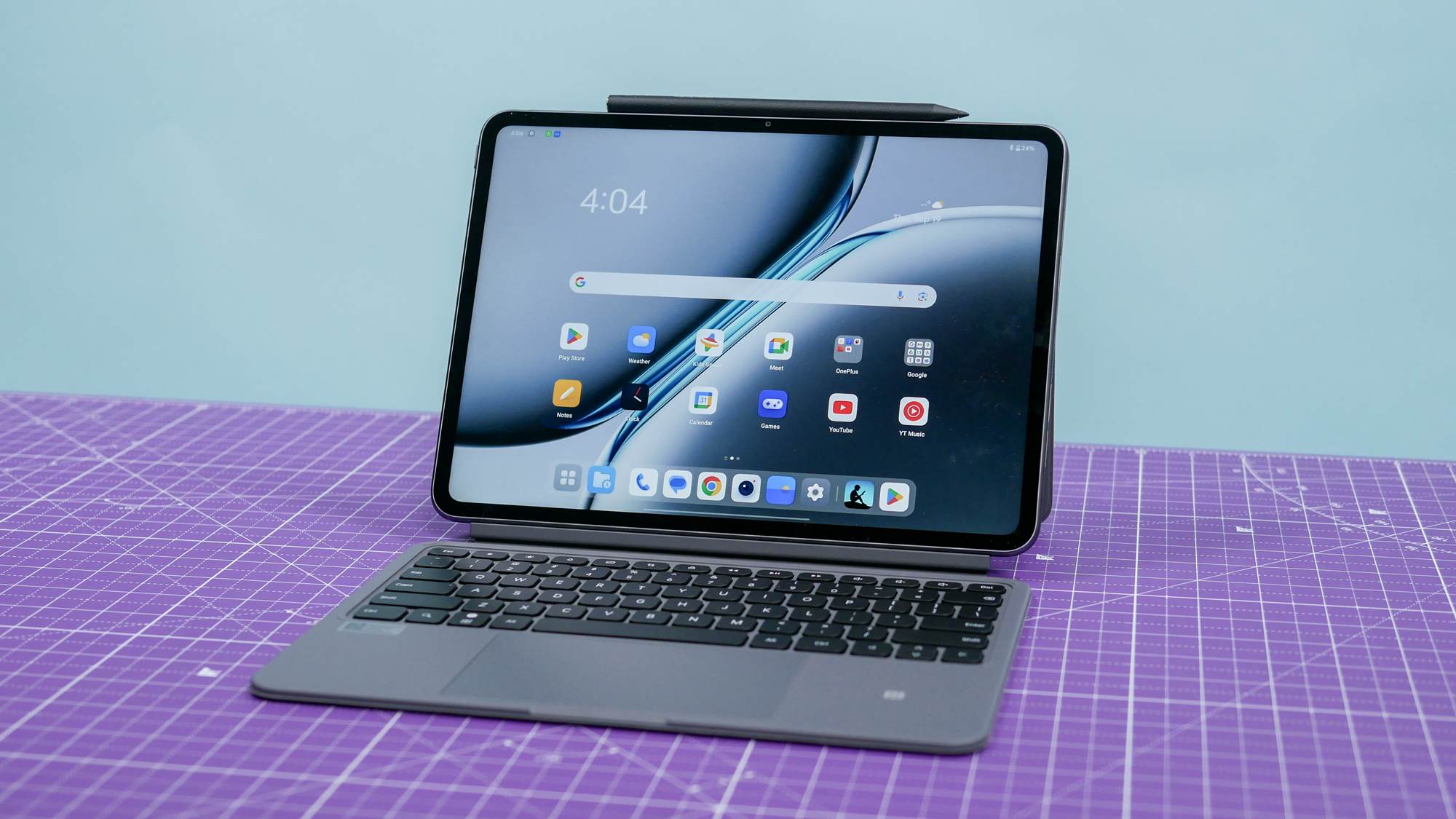

The OnePlus Pad 2 is a premium Android tablet for those who want an iPad competitor that delivers lovely design and good performance at a great price.
I think this curved slate is the best Android tablet for most buyers because it gives you a lovely premium slate with all-day battery life and plenty of power for less than an iPad Air. Though it’s pricier than the original OnePlus Pad, it still delivers great value thanks to its speed, cameras and iPad Air-beating battery life.
That’s right: in our battery test, the OnePlus Pad 2 lasted 14 hours and 58 minutes on a full charge, beating the newer iPad Air (2024) and almost every other tablet on this list. That all-day battery life is handy to have in this tablet because its deeply rounded edges make it more comfortable to hold for long periods than any other slate on the list, and the massive 13MP camera on the back is good enough that you might actually want to take photos with your tablet. And while our tests show it’s not as fast as the iPad Air M3, this slate is still great for getting things done or playing games, not least because of its great four-speaker sound system.
The OnePlus Pad 2 is arguably a more effective productivity device than Apple’s iPads, in part because Android is a more versatile operating system (so it’s easier to move files around and run a wider variety of apps) but also because the OnePlus Pad 2’s optional stylus and keyboard cover are cheaper than their iPad counterparts. So if you’re aiming to build a productivity tablet setup on the cheap, the OnePlus Pad 2 paired with the OnePlus Smart Keyboard ($149) and OnePlus Stylo 2 ($99) will get you there for less money than Apple’s options.
Lastly, everything looks great on the updated 3K display, which is now on par with the iPad Air M3 in terms of color reproduction, color accuracy and overall brightness. Whether it’s comics or YouTube videos, everything looks its best on this panel.
Read our full OnePlus Pad 2 review.
Best Windows tablet
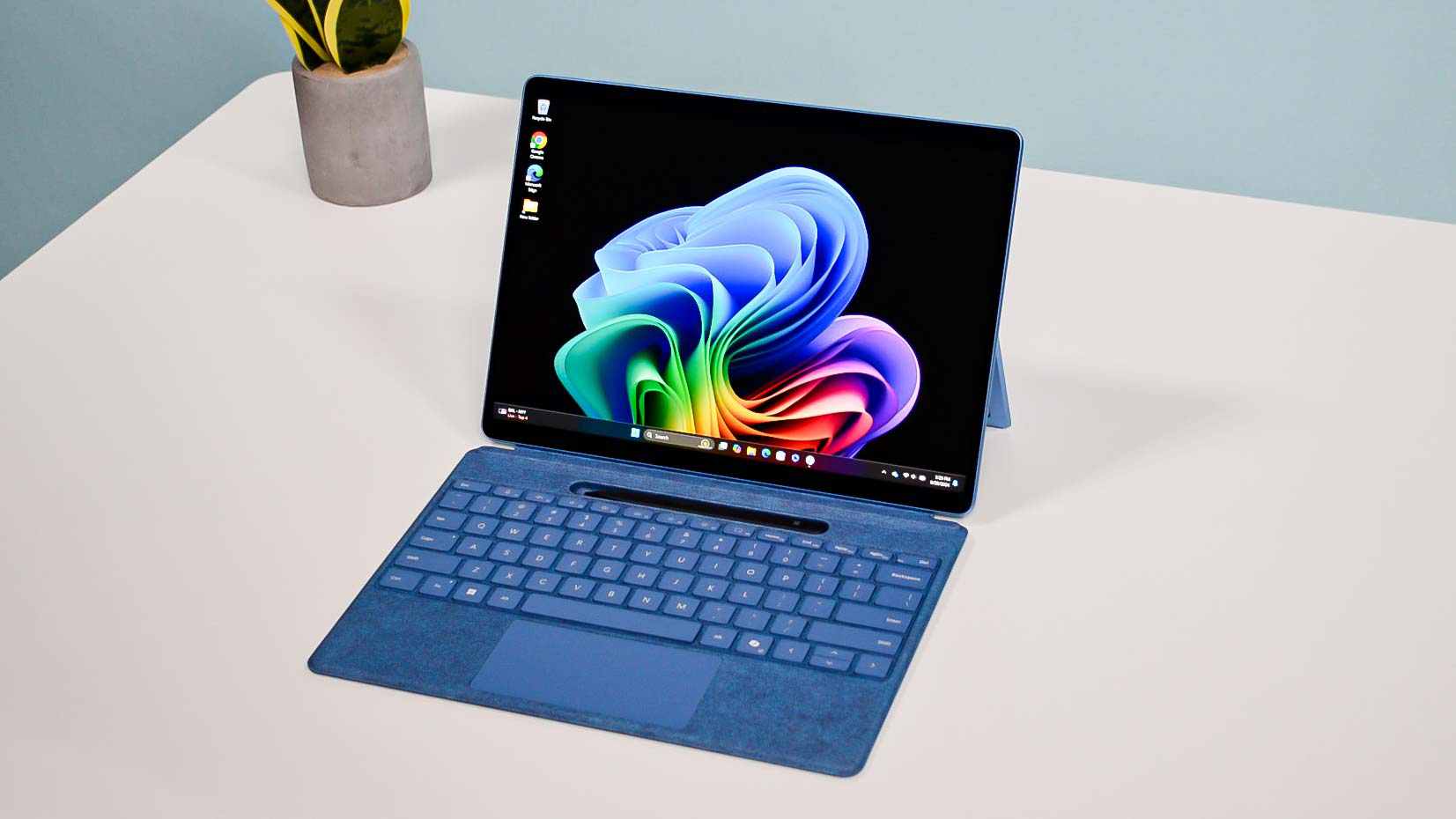

The Microsoft Surface Pro 11 is a Windows 11 tablet for users who want the versatility of Windows with the accessibility of a tablet, and it’s the best yet thanks to the inclusion of Qualcomm’s new Snapdragon chips.
I recommend it as the best Windows tablet for most people because it’s faster and better-looking than any competing Windows slate – and there aren’t many to choose from. While Microsoft’s Surface Pro tablets have been a bit boring for years, the Surface Pro 11 shakes things up with a new OLED display option and a new Snapdragon X chip under the hood. That Snapdragon chip pushes this tablet to new heights of speed and power efficiency, making it the fastest tablet on this list save for the iPad Pro M4. It also helps that this slate lasts just over 12 hours in our battery tests, which means you can carry it for a full day without worrying too much about plugging in.
And while you can get by just fine with the base model ($999) and its 13-inch LCD display, those who can afford to splurge by spending $600 on upgrading to the OLED-equipped version should appreciate the additional vivacity and brightness of the display, which gets brighter than the iPad Air (2024) in our display tests.
However, there are a few caveats to know before buying. While Microsoft is keen to talk up the Windows 11 AI features this tablet supports thanks to its Snapdragon chip, in our hands-on testing we didn’t find them to be very valuable or useful save Live Captions, which uses AI to automagically display captions for any audio you’re listening to in real-time. And while this Windows tablet screams out to be used as a productivity device, Microsoft will gouge you on peripherals in a very Apple-like way if you go that route. At time of review, for example, the detachable Surface Flex Pro keyboard cost an additional $349 and the Surface Slim Pen 2 stylus cost another $100, which means you’re paying nearly another $500 just to outfit this Windows tablet with the accessories that allow you to use it to maximum effect.
Overall, though, this is the best Surface Pro tablet yet, and the best Windows 11 tablet on the market.
Read our full review of the Microsoft Surface Pro 11.
The best big-screen tablet
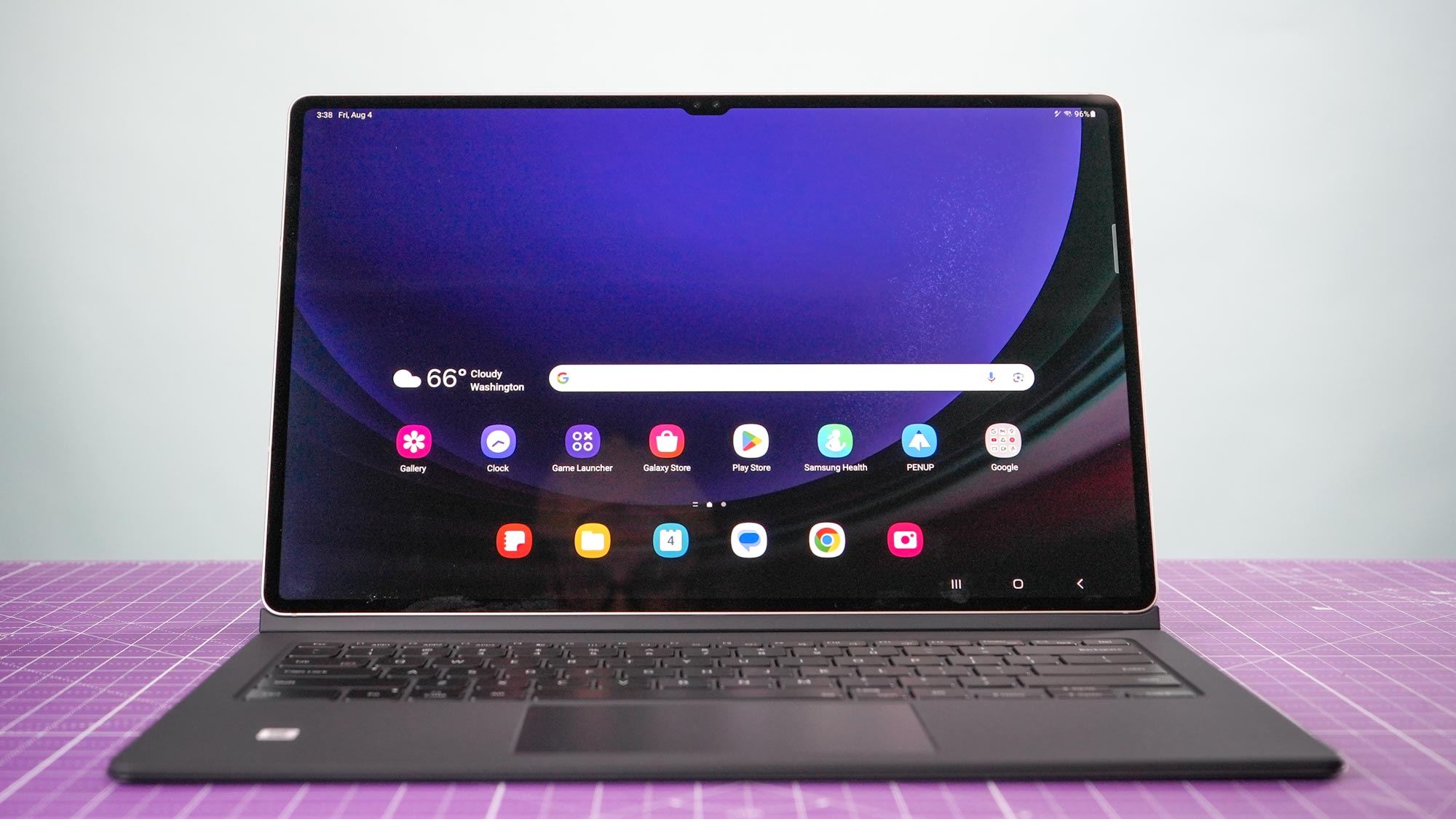

When you absolutely, positively need the biggest tablet possible, opt for the Samsung Galaxy Tab S9 Ultra.
This is not only the tablet with the biggest screen but the best big-screen tablet, in my opinion, because it marries a gorgeous 14.6-inch AMOLED display with a speedy Snapdragon 8 Gen 2 processor. And despite the size of the screen this 1.6-pound slate doesn’t feel heavy thanks to its elegant ultra-thin design, which is hairs thinner than an iPad Air.
Of course, the size of the screen does make it feel a bit unwieldy and you’ll generally want to use two hands or a stand when using the Galaxy Tab S9 Ultra. But what a screen it is: our review unit’s 14.6-inch (2,960 x 1,848 pixels) AMOLED display looks luscious in person, and our lab testing reveals it’s actually more colorful and more color-accurate than either the iPad Air or the iPad Pro’s mini-LED display. The Galaxy Tab S9 Ultra’s AMOLED screen is also has an adaptive refresh rate capable of achieving up to 120Hz (which can make scrolling and gameplay feel smoother), while the iPad Air (but not the Pro) is still stuck at 60Hz.
You can play all the latest Android games and enjoy all your favorite apps on this slate thanks to its Snapdragon 8 Gen 2 chip, which can’t match the speed of the iPads on this list but still handles all the latest apps with aplomb. Plus, the Galaxy Tab S9 Ultra comes with a stylus packed in for free, a nice touch Apple won’t match with its iPads.
However, there’s one big drawback to having a tablet with an AMOLED screen this big: battery life. In our lab the Tab S9 Ultra lasted under 10 hours (9:27), which is fine for casual use but frustrating when you want to use this tablet on the go all day. Plus, it comes pre-installed with a bunch of Samsung apps, most of which are basically worthless if you don’t already own other Galaxy devices.
Read our Samsung Galaxy Tab S9 Ultra review.
The most powerful tablet
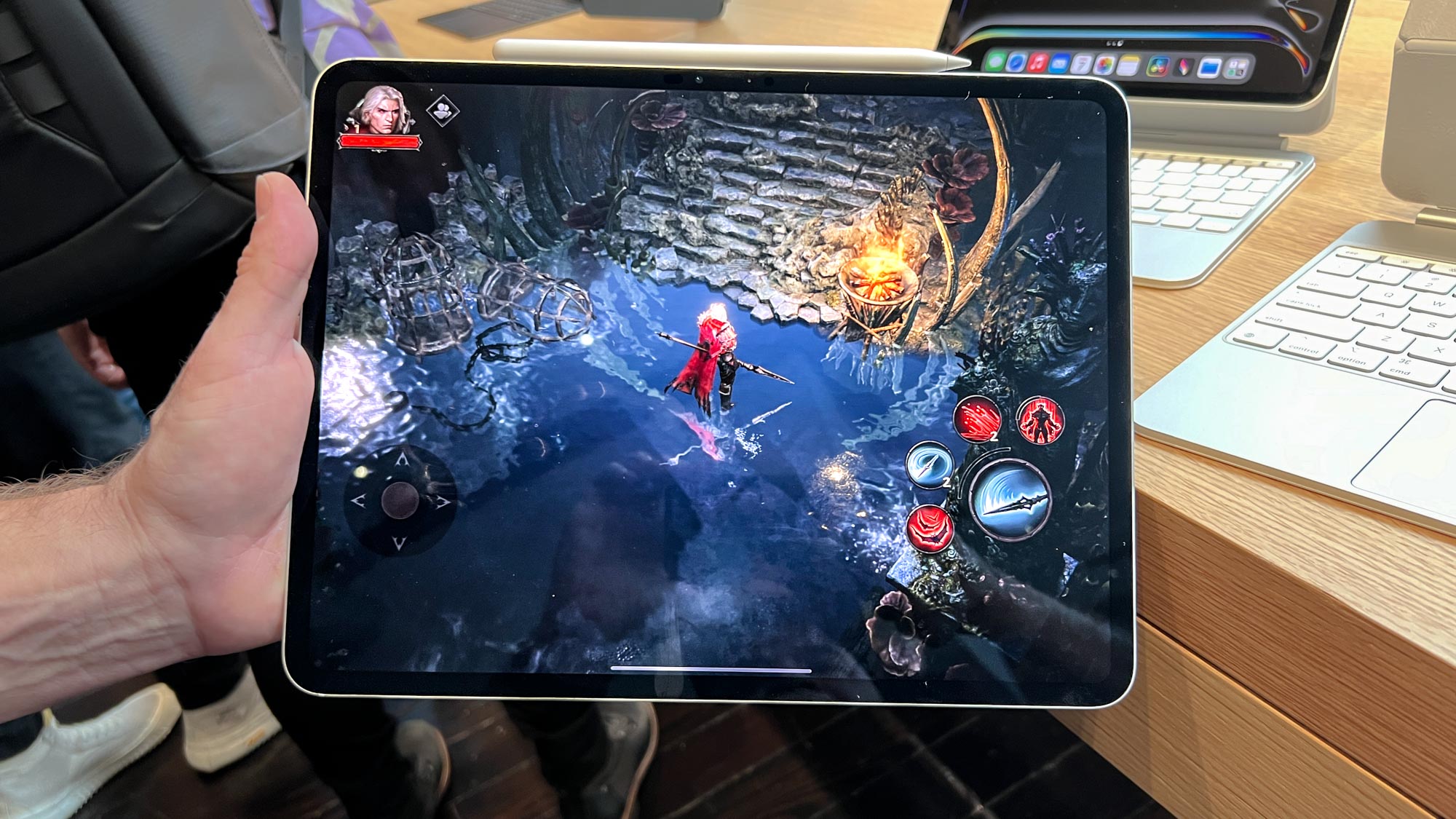

The 2024 iPad Pro was the first device to be graced with the cutting-edge Apple M4 chip, and that tiny titan under the hood makes it the most powerful tablet you can buy right now.
That makes this the best tablet for folks who want the most raw power, and I know because we’ve put one through its paces in our testing lab. But the 2024 iPad Pro is more than just a powerhouse — this is Apple’s top-tier premium tablet, and it has a lovely OLED display that makes everything you do on it look great. Plus, that Apple M4 chip helps it deliver the best battery life (13:13) of any tablet on this list save the OnePlus Pad 2, and it does it all in a slim, elegant chassis that weighs roughly a pound.
Of course, it’s hard to know why you’d want an iPad this fast when the iPad Air 2024 with its older M2 chip is still plenty fast enough to handle any app you can run on it. But it’s not hard to know exactly how fast the iPad Pro (2024) is, because we put it through our benchmarking tests and this slate did better in our Geekbench CPU tests than any tablet on this list.
In our display testing lab this slate also earned rave reviews, and while it’s roughly on par with the Galaxy Tab S9 Ultra in terms of color accuracy the iPad Pro’s tandem OLED display gets significantly brighter—up to 1,510 nits when viewing HDR content, which is luminous enough to hurt your eyes in a dim room. And if you want to use it outdoors, you can shell out an extra $100 for a nano-texture glass coating that makes the screen less reflective.
But you pay a steep price for this top-tier iPad, and it’s just not worth it if you don’t need all that speed and screen quality. While this is the best iPad for those who want the most power and best screen, it’s not the best iPad for most people – that’s still the iPad Air, which comes in the same sizes (11-inch and 13-inch) as the Pro yet costs far less.
Read our full iPad Pro 2024 review.
The best for writers
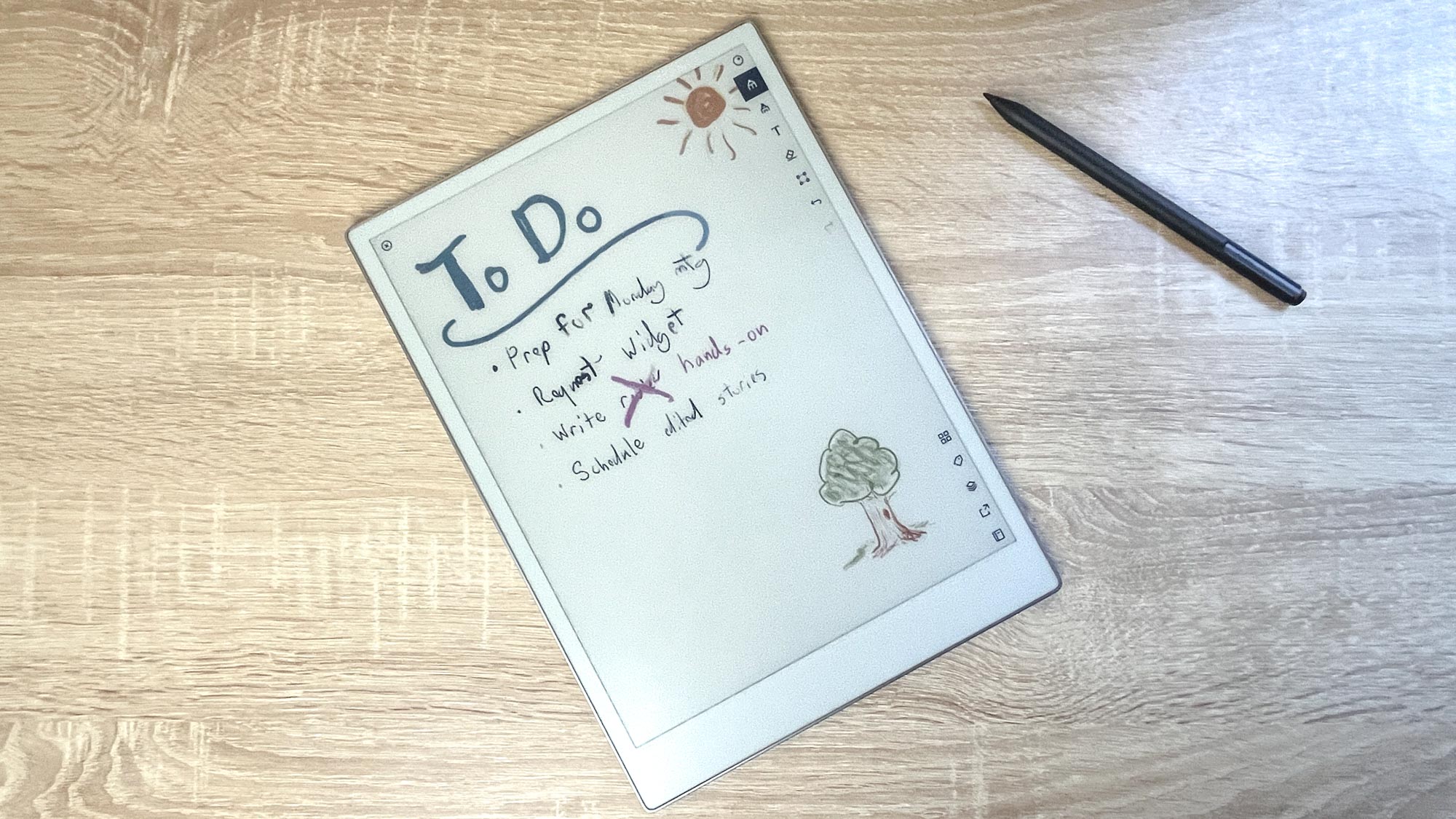

The ReMarkable Paper Pro is a tablet designed for readers and writers, and you can tell right away when you see its 11.8-inch e-paper display in action. Drawing a line across the screen with the ReMarkable Marker replicates the feeling of a pen on paper, but when you flip to a new page there’s a noticeable delay as the Canvas Color display refreshes itself.
That’s why I think this is the best tablet for writers and readers, but not so much for everyone else: you sacrifice a lot of versatility and speed to enjoy the feeling of writing on on this color e-paper display. It feels great, too, because ReMarkable engineers have worked to fine-tune the 4,000+ levels of pressure sensitivity and reduce the lag between when you draw and when a line appears to mere milliseconds.
But even so, in my testing I found that you can often notice a delay between when you paint a line or flip a page and when the action actually happens on-screen. You get used to it, but it’s not much fun when you’re used to the snappy responsiveness of the other tablets on this list.
Bottom line: This is the best e-paper tablet for writers who want to jot down notes or mark up digital documents on a slate that makes it feel like you’re writing on paper. The added backlight (a first for the line) is also nice to have, but the cost of this tablet (as much as an iPad Air) ensures it will remain a niche product for writers.
Read our full ReMarkable Paper Pro review.
Also tested
We test and review dozens of tablets every year, and even though they can’t all make this list that doesn’t mean they aren’t good machines. There are also some really great slates that maintain their value over years, so we sometimes recommend them as good alternatives to the best tablets that are often sold at a discount.
So while these tablets didn’t quite achieve the level of excellence needed to be leaders of the pack, they’re good alternatives well worth considering if they meet your unique needs, or if you can’t find your first choice on sale.
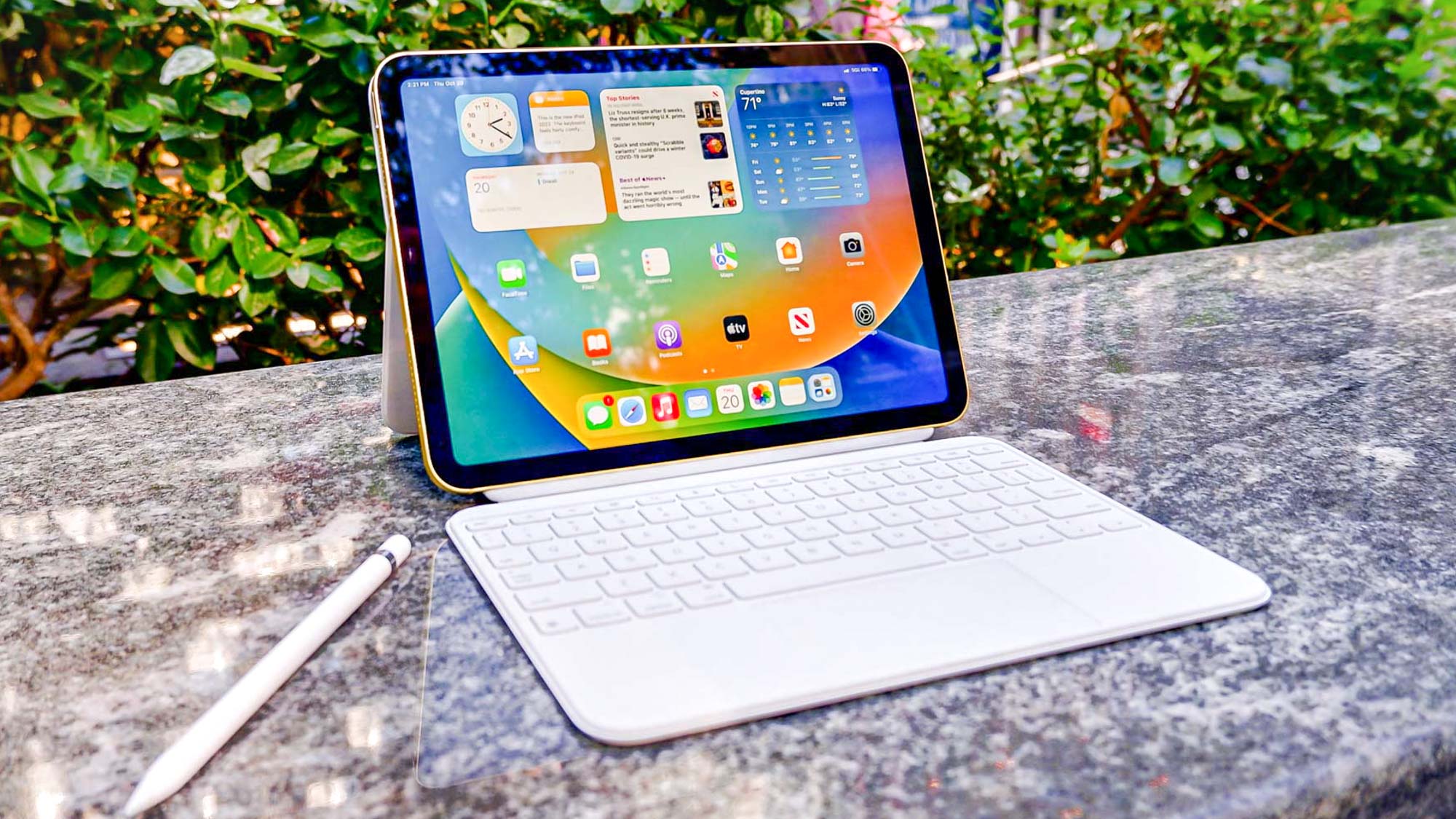
The iPad 2022 is a bit more expensive than its predecessors, but Apple justified the price hike with a sleek new redesign that slightly expanded the display, removed the Home button, upgraded the power button with Touch ID support and added USB-C charging.
Sadly, you’re still pretty limited in what accessories you can get for this basic iPad. It doesn’t work with the new Apple Pencil Pro, for example, but does work with the 1st-generation Apple Pencil. These limitations are easier to stomach when you remember this iPad starts at $349, which is $250 cheaper than the entry-level iPad Air.
And while its shortcomings sting, we still feel the basic iPad remains the best iPad to buy if you want an Apple tablet, but can’t justify the added expense of the iPad Air’s $599 starting price.
The interesting thing about the 2022 redesign of the basic iPad is that it brought it a lot closer to the iPad Air in terms of design (thinner, bigger screen, USB-C charging, etc), so for the $349 you’re getting an iPad 2022 that’s not far behind the iPad Air (our top recommendation for best tablet) in terms of capabilities. It lasted nearly 11 hours in our battery testing, too, so it’s plenty long-lived enough to see you through a day on the couch.
Read our full iPad 2022 review.
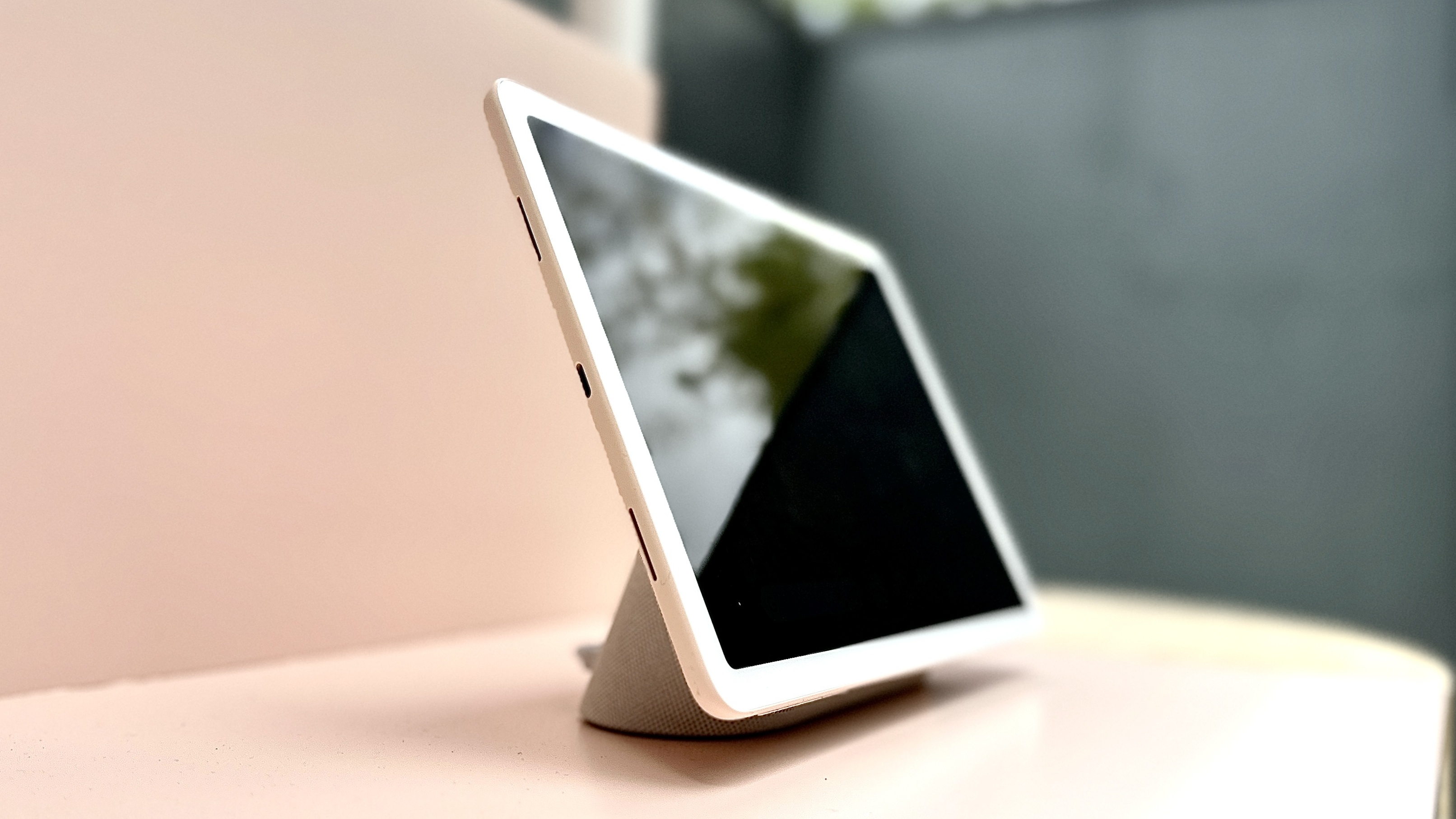
The Google Pixel Tablet stands out from every other on this list by being the only one to come with its own speaker/charging dock.
For some shoppers this will be a useless gimmick, but this obvious attempt on Google’s part to stand out from the pack pays off if you want to get started with a Google smart home. This is the only tablet on the market that doubles as a solid smart home hub out of the box, and it’s a great value.
The speakers on the tablet’s charging dock are also great, delivering more satisfying bass at the expense of some treble. It’s a good Android tablet too, comparable to Apple’s iPad 2022 despite costing $50 less. But its support for various smart home technologies varies, and it’s not a great choice for all smart home owners as it can’t match the capabilities or sound quality of some of the best smart home hubs.
Read our full Google Pixel Tablet review.
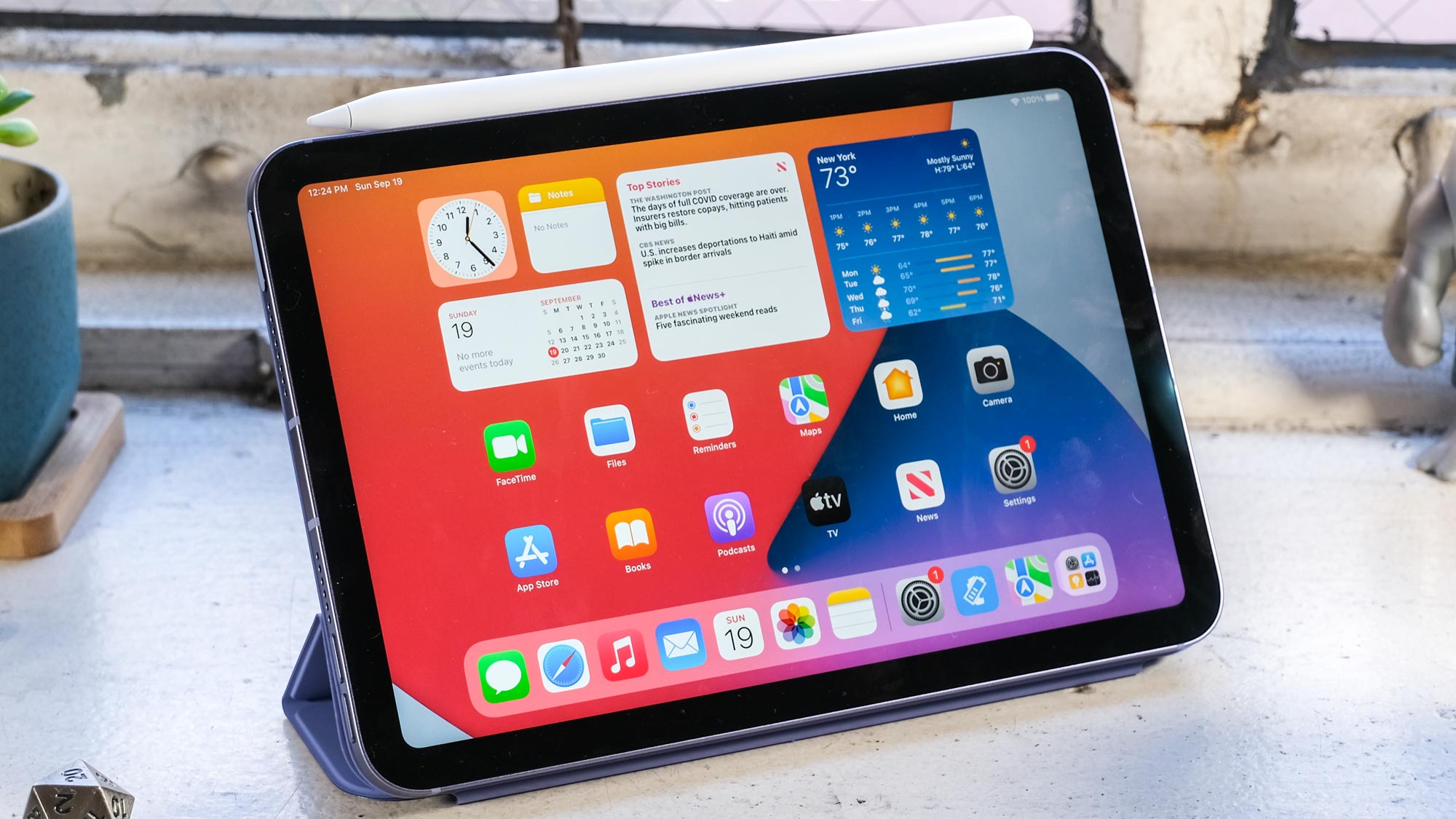
Take almost everything we know and love about the iPad Air, but shrink it down to a size and weight that’s super-easy to use with just one hand and you have the iPad mini 6 (2021), which may be the iPad you’ve been waiting for. It has the Apple Pencil 2 support with the flat-edged design, the much-smaller bezels and nearly everything else we love about an iPad. Currently, Amazon has the market cornered on sub-10-inch tablets with the pricing of its Fire slates, but the new iPad mini gives quality-focused folks an alternative worth investing in.
On top of that, you’ve got the super-fast A15 Bionic system-on-chip, which outpaces the iPad Air and every non-Pro iPad out there. Its display is also super bright (over 500 nits of brightness), plus surprisingly good sound for a device this small. Oh, and speaking of outperforming its size, the iPad mini 6 has terrific battery life. The only thing that isn’t small about the iPad mini 6? Its $499 price tag is a bit higher than the normal iPad, but it’s another case of “you get what you pay for.”
Read our full Apple iPad mini 6 (2021) review.
Battery life compared
Battery life is one of the key things to consider when buying a tablet, and you can’t always trust manufacturer claims about how long they’ll last on a single charge.
That’s why we put every tablet we test and review through a series of battery tests, then average the results and compare them against the competition. I’ve assembled the tested battery life of every tablet on this page here in one handy chart, with the exception of the ReMarkable 2 since that e-ink tablet is designed to last up to 2 week on a single charge (according to ReMarkable) and we couldn’t adequately test it using our testing regimen for tablets.
| Header Cell – Column 0 | Time (min:secs) |
|---|---|
| iPad Pro 2024 | 13:13 |
| iPad Air 2024 | 11:30 |
| Microsoft Surface Pro 9 | 10:01 |
| Google Pixel Tablet | 11:56 |
| Samsung Galaxy Tab S9 | 9:06 |
| Samsung Galaxy Tab S9 Ultra | 9:27 |
| Apple iPad (2022) | 10:57 |
| Apple iPad Air (2022) | 10:09 |
| Apple iPad Pro (2022) | 10:37 |
| Apple iPad mini 6 (2021) | 10:56 |
How to choose the best tablet for you
The best way to pick an ideal tablet for you is to look at what devices you already own and use on a regular basis. If you’re an iPhone user and already tied into Apple’s ecosystem, the iPads are a great choice that come in a variety of prices and will integrate more seamlessly with your day-to-day workflow than other tablets on this list.
If you prefer Android you have a fair few Android tablets on this list, but only the Google Pixel Tablet offers the unique dual functionality of doubling as a smart screen for your home when not in use. It’s only a killer feature for certain people, but if you’re one of them then it’s probably a better choice for you than Samsung’s (also excellent) Android slates.
If you really love Windows 11 and like the idea of being able to use your tablet as a laptop, right down to being able to access your usual desktop email client and all your favorite Windows programs, the Surface Pro 9 is probably the right choice for you. It’s not quite as slick or as polished to use as the iPads and other tablets on this list, but in return you get the versatility of Windows 11.
How we tested these tablets
As part of our review procedure we first open every tablet we receive, install our testing software and put it through as many tests as possible. The variety of tests we can install and perform varies depending on the tablet operating system (we have to run different tests on Amazon Fire tablets than we do on Apple’s iPads, for example), and they allow us to see how different slates stack up. These tests also help us verify whether manufacturer claims about things like, say, brightness or battery life hold true.
We use professional-grade colorimeters to measure how bright the screen can get on every tablet we test, as well as how well it displays colors in the sRGB and DCI-P3 color gamuts. And we don’t stop there.
Depending on the operating system we will run performance tests meant to gauge how well a tablet runs games or loads webpages, and we also run every slate through a battery test to see how long you can expect them to last on a full charge.
Finally, after lab testing is complete to our standards we have one of our experienced reviewers (all of whom have spent at least 5-10 years professionally reviewing tablets, laptops and other personal computing gear) spend a week or more doing everything the tablet you would do. We’re talking surfing the web on the couch, watching movies in bed, playing games in the back seat, reading books on the train and typing out emails on the plane. When possible we also try to hang on to review units for long-term testing, so we can verify these slates receive software updates in a timely manner and hold up to long-term day-to-day use.
For more information, check out our how we test page for Tom’s Guide.


